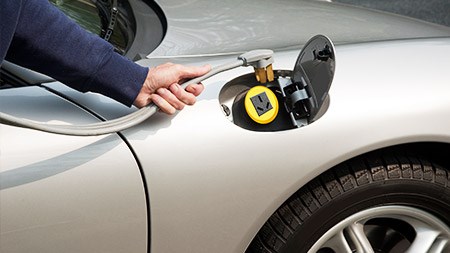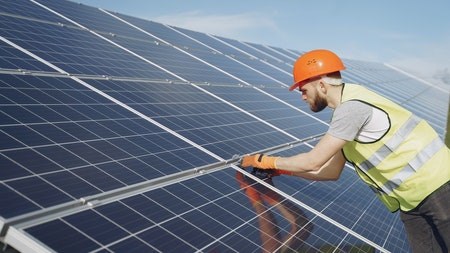Naysayers insist that electric cars are a passing fad. Are they really just a supercharged flash in the pan or is the road to motoring’s future paved in electrons?
Electric vehicles (EVs in motor-industry lingo) are all the buzz at the moment. But the concept is not new – or particularly revolutionary. EVs have actually been around for yonks; since the early 1800s, in fact. They’ve had a tumultuous history – the inventor of the EV is a subject that is still hotly debated (around that time, electric cars were being developed by inventors in Hungary, Scotland, Holland and America). There have also been question marks about the environmental costs of producing these cars and their safety. And, in 2006, a documentary entitled Who Killed the Electric Car? claimed that vehicle manufacturers and the oil industry had deliberately destroyed the EV for financial gain. (The film suggested that both sectors had a lot to lose: the oil companies’ losses were obvious, and it was maintained that the car companies would lose revenue because EVs don’t require as much maintenance as regular cars). Fast forward to 2014, and EVs remain the talk of the town. Motorists aren’t just raving about these vehicles; they’re buying them too. According to Pike Research, annual worldwide EV sales will reach 3,8 million by 2020. The company estimates that EV sales will grow at a rate of 40% annually – versus ‘regular’ car sales, which are expected to rise at just 2% a year.
Environmental legislation will dictate the future for electric/ hybrid-electric cars. As emission controls become more stringent, so technology will adapt to provide suitable, sustainable motoring solutions
– Christo Kruger, public relations manager at Porsche Centre South Africa
THE ROUTES OF POWER
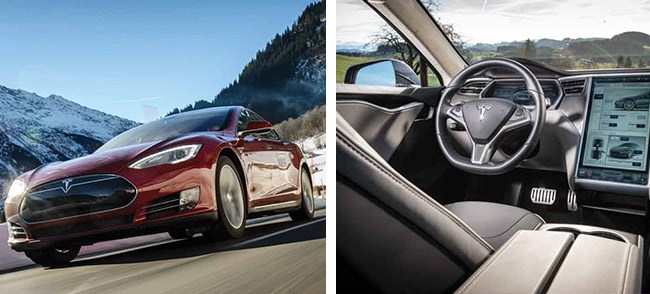
One of the reasons for this growth is the evolution of the EV; while the concept is far from new, electric cars have certainly come a long way.
Whereas early electric cars crawled along the road at speeds of 20km/h, the modern electric car can be as exciting as any car with a combustion engine. Take the Tesla Model S, for instance, which REAL ESTATE recently drove in Munich: it sprints from zero to 100km/h in just 5,4 seconds, and it has a range of up to 482km, which is quite astounding for an electric car. It is also an utterly beautiful car – both inside and out. Furthermore the Model S boasts some truly marvellous features; we loved the fact that the all-glass panoramic roof can be opened by swiping the enormous touchscreen (à la iPad), for instance.
In fact, the Model S is one of the most sensational cars we’ve ever driven – and it will come to South Africa eventually, although a launch date has yet to be confirmed… and does the pricing (it costs upwards of R700 000 overseas). There’s huge hype surrounding Nissan’s Leaf too, which is the world’s first mass-produced EV. While future sales projections are now less optimistic, 100 000 units have already been sold since the vehicle’s December 2010 launch. It is now sold in 35 countries, and in Norway it even out-sold conventional combustion-engine cars in 2013. The Leaf is available in South Africa too (initially only in Gauteng, the vehicle is now sold also in the Western Cape and KwaZulu-Natal). There has been some concern about its relatively high price tag of R446 000. But, according to Veralda Schmidt, manager of media relations at Nissan South Africa, the company is “well on its way to meeting its target of 100 units for the first year of sales”.
Schmidt says there are many reasons why electric cars are proving popular: “We have seen three types of customers of the Nissan Leaf: the so-called ‘standouts’, who are passionate about innovation and technology; the ‘socially responsible’, who are ready and willing to pay more to save the environment; and the ‘money- savers’, who are interested in the financial benefits related to the EV. If you take into consideration that R300 worth of electricity can take you as far as fuel costing R3 000, a customer can pay the vehicle off in three to four years!”
The Nissan Leaf has a range of up to 195 km and it takes 11,5 seconds to do the zero to 100 km/h sprint. And it is just one electrically powered product within the Nissan range. ‘We are working on a comprehensive range of EVs,’ says Schmidt. “The NV200 van will soon be available in EV format (badged the e-NV200). We are also developing electrically powered racing cars, such as the ZEOD RC, which will be on the track at Le Mans this year.”
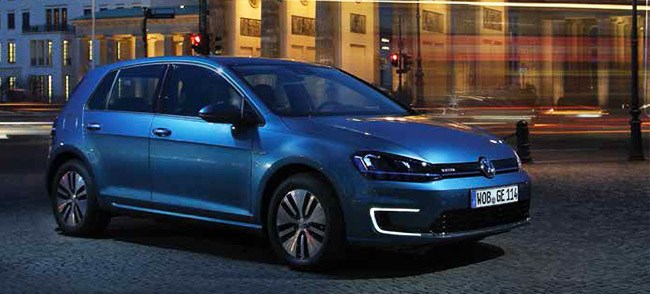
Two German automakers – BMW and Volkswagen – also have big plans on the electric front. The former will launch its i3 and i8 in South Africa next year. Its introduction was planned for 2014 but, according to Edward Makwana, manager of group automotive communications at BMW South Africa, the local launch has been delayed “simply because demand for the BMW i3 is developing above expectation in some of the key European and USA markets. Therefore, in order to make sure that all customers can take delivery of their i3 within an appropriate timeframe, we have decided to postpone the market introduction in some countries (like South Africa) where the BMW i3 and i8 have not yet been on sale.”
We have driven the i3, and it’s a marvellous little city car – absolutely ideal for manoeuvring in tight areas. Performance is peppy; the i3 does zero to 100km/h in 7,2 seconds. It has a range of up to 160km. When we first viewed the car, we thought it was ugly. But it’s like a baby. Even if, at first, you think it’s unattractive, it does grow on you in time – and eventually you think it’s kind of cute. We have no doubt that, assuming it is competitively priced, it will prove popular in South Africa when it finally arrives next year. Pricing has not been confirmed; we were expecting it to cost about R450 000 when a 2014 launch was still on the cards. Whereas the i3 has a controversial design, the same cannot be said of Volkswagen’s EV offering, the e-Golf. It’s certainly anything but ugly – because it looks like a regular Golf. This is Volkswagen’s second EV – the e-Golf follows the e-up!, which was never sold in South Africa. The same won’t apply to the e-Golf; it’s coming here late in 2015 – and it really is the perfect family car. REAL ESTATE drove the vehicle at its recent world launch in Berlin, and it has all the attributes of the regular Golf – faultless build quality, super design, top-notch safety features and exemplary levels of comfort. Its performance is anything but dull: the e-Golf accelerates from zero to 100km/h in 10,4 seconds, which is really not too shabby. It has a maximum range of up to 190km.
So there you have it: the EV contenders within a South African perspective, at least. They’re all truly marvellous creations, if serving a niche market only. But are they here to stay this time around? Or do they represent an electric flash in the motoring pan?
A FLUORESCENT FUTURE?
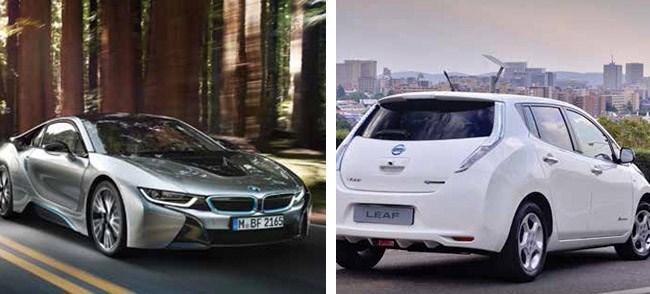
Daimler AG – EV market leader in Germany thanks to its electric Smart – is upbeat about future prospects. ‘For us, the future of mobility has long centred on electrification. With a total of nine emission-free vehicles with battery or fuel cell power, Daimler AG already has the widest range of electric vehicles on the road,’ Dr Thomas Weber, member of the board of management of Daimler AG, responsible for group research and Mercedes-Benz cars’ development, notes. In addition to passenger cars, Mercedes-Benz offers a range of electrically powered commercial vehicles. Series production of the Vito E-Cell, for example, commenced as early as 2010 – and it’s now available in 15 European countries.
Guy Kilfoil, general manager of group communications and public affairs at BMW South Africa, shares Weber’s enthusiasm. ‘EVs are a viable technological alternative to vehicles with internal combustion engines for the first time in history. As battery and manufacturing technology improves even further, this will become even more apparent. Already, an EV costs around one third of what it costs to run a normal vehicle. As Evs become more popular and economies of scale kick in, they will become more affordable as well and then raw economics will do the rest,’ he points out.
Klaus Rehkugler, director of product management C-Class, concurs that electric cars are here to stay. ‘But I don’t see electricity as the single means of powering cars in future,’ he tells REAL ESTATE. Rehkugler believes that EVs won’t necessarily have a smooth ride. ‘You have early adopters with a concept such as electric cars.
But what comes next?’ he queries. In other words, what happens when the hype dies down? In the case of the Nissan-Renault family, the hype appears to have simmered – rather than died down completely. While its chief executive Carlos Ghosn believes that the future is bright for electric cars, he has revised sales projections (from 1,5 million units worldwide by 2016 to the same in 2020).
“Sales are very closely linked to the development of infrastructures, but we are seeing more and more competitors coming onto the scene, which is always a tell-tale sign,” he contends. Like Tesla, all eyes are on the lucrative Chinese market – Ghosn reveals that Renault, which owns more than 40% of the Japanese company, is looking at producing electric cars in China to gain entry to that market.
Speaking of China, Hannes Oosthuizen, brand and product-development manager at GWM, believes that EVs are finally here to stay – although they will remain niche products ‘for some time: the likes of Tesla and Nissan have shown that market success and critical acclaim are possible.
I think the real test will be the market acceptance of BMW’s new “i” cars. If they take off, then expect everyone to jump in,’ he predicts.
EVs are here to stay as more and more manufacturers bring them to market, but you will only get critical mass once the ease of use is on a par with fossil–fuelled vehicles
– David Sieff, marketing director of Kia South Africa
FUEL FOR THOUGHT
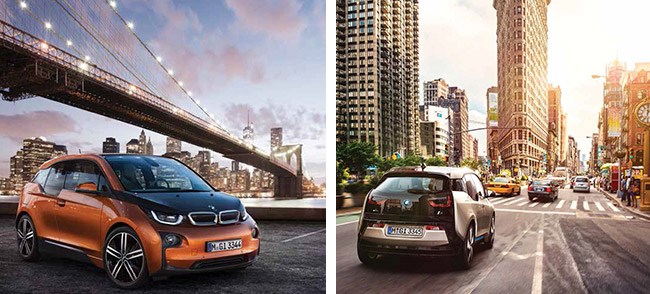
Oosthuizen partially attributes the future success of electric cars to the cool factor. “Going green has never been cooler. So, on the one hand, manufacturers are hoping to cash in on increasing consumer awareness of environmental matters. On the other hand, the required technology has improved, so longer ranges are now possible. Finally, the automotive sector has been made the scapegoat for much of the world’s climate-change problems, and there’s significant pressure on them from governments to clean up. The EV is one way to do so.”
Dr Heinz-Jakob Neußer, board member of management for the Volkswagen brand and head of powertrain development, foresees a bright future for electromobility – but he says that a charging infrastructure is vital. “The Transport Committee of the European Union Parliament recently came out in favour of constructing 450 000 charging stations in Europe by 2020 – 86 000 of which will be in Germany alone. Currently there are about 2 200 public charging stations in Germany,” he says, adding that the infrastructure needs to be rolled out – fast. The same clearly applies to South Africa.
Gareth Azzie, marketing manager for Geely, concurs that recharging is pivotal. ‘I believe electric cars will cement their place in the automotive environment as soon as a system is developed whereby a user can “refill” an EV in 10 minutes. Furthermore, a standardised system is needed across all brands,’ he says. David Sieff, marketing director of Kia South Africa, takes this argument one step further: ‘EVs are here to stay as more and more manufacturers bring them to market, but you will only get critical mass once the ease of use is on a par with fossil- fuelled vehicles,’ he believes.
However, like many other captains of industry, he says that challenges remain with EVs. ‘There are still two major restrictions – the ability to travel decent distances between charges and the cost of infrastructure to keep the EVs going over longer distances. The disposal of batteries will also become an environmental challenge and will need to be addressed,’ he warns. Christo Kruger, public relations manager at Porsche Centre South Africa, believes that the future of the EV is closely aligned to legislation. ‘Environmental legislation will dictate the future for electric/hybrid-electric cars. As emission controls become more stringent, so technology will adapt to provide suitable, sustainable motoring solutions,’ he says.
GWM’s Oosthuizen agrees. ‘In some countries, governments are incentivising the purchase of electric cars and, at present, this is required to offset the higher initial purchase cost,’ he points out. The lack of these incentives is central to the future of the EV in South Africa, as Denise van Huyssteen, communications manager at General Motors Africa, notes: ‘In all global markets the introduction of hybrid or electric vehicles has been underpinned by government incentives. In the South African market electric and hybrid vehicles would prove to be expensive and, while there are currently no government incentives in place to influence customer behaviour, demand is very low.’ As such, Van Huyssteen explains that we shouldn’t expect a flurry of EVs – well, certainly not in South Africa. “A key inhibitor is the high costs involved in developing these vehicles, which effectively restricts sales to the more developed markets. It is only when later-generation models are developed, thus resulting in improved efficiency and lower costs, that these vehicles become more affordable for introduction into developing markets,” she explains.
Of course, like so many other things, the eventual success or demise of the EV will be all thanks to one simple factor: customer demand. As Craig von Essen, head of global product communications at Ford Motor Company in Detroit, says: “Customers now rate fuel economy as the top purchase reason in every segment in the US – from small cars to large trucks. Understanding this, Ford believes in giving customers the power of choice – from EcoBoost-powered vehicles and hybrids to plug-in hybrids and full electrics. We also are electrifying our most popular global platforms instead of one-off specialty models, so we have manufacturing flexibility to balance our production to meet customer demand. Ultimately, customer acceptance of the new electrified technologies will determine sales,” von Essen concludes.
The message is clear, then: the future of the EV will depend on the power of the purse. Unless, of course, the EV is killed off. Again.
